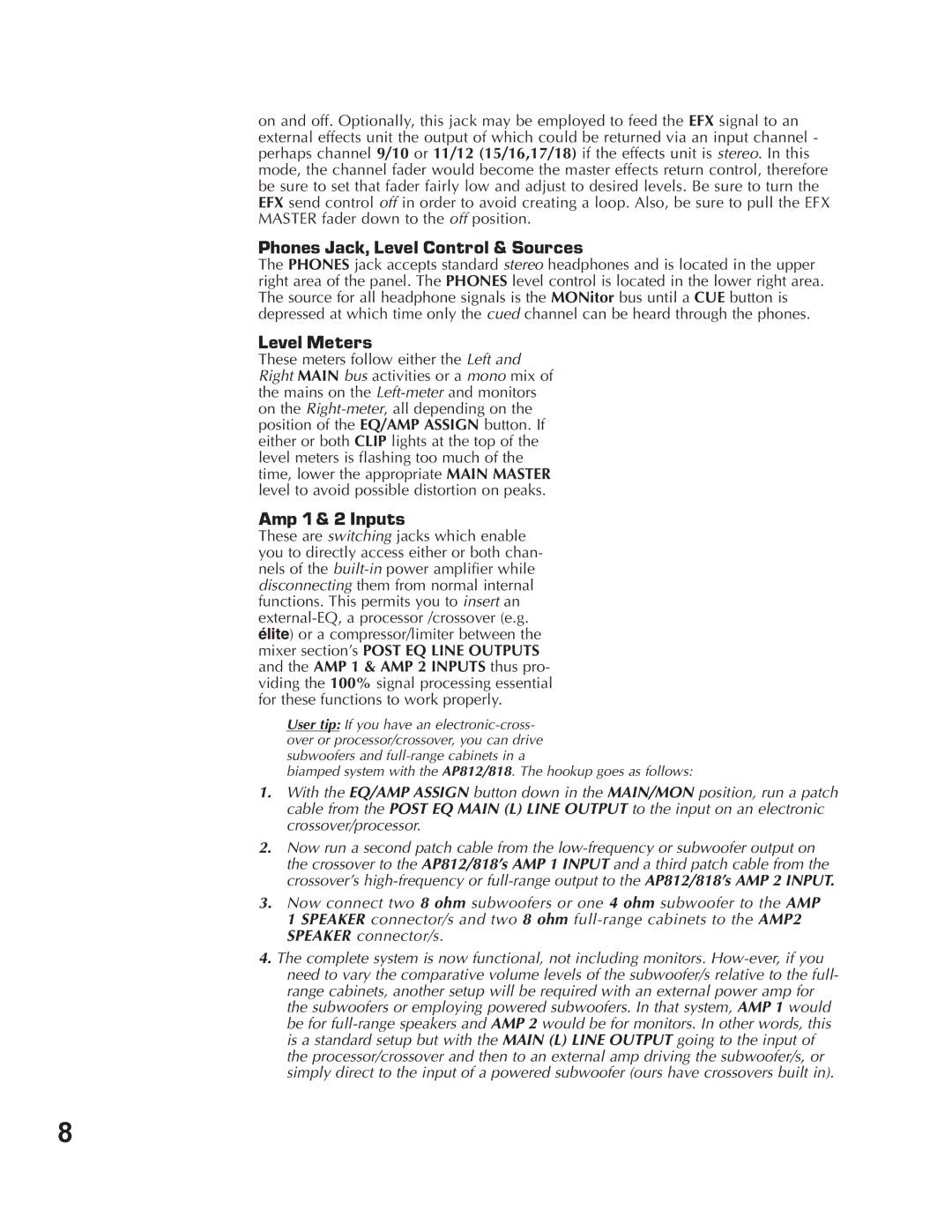
on and off. Optionally, this jack may be employed to feed the EFX signal to an external effects unit the output of which could be returned via an input channel - perhaps channel 9/10 or 11/12 (15/16,17/18) if the effects unit is stereo. In this mode, the channel fader would become the master effects return control, therefore be sure to set that fader fairly low and adjust to desired levels. Be sure to turn the EFX send control off in order to avoid creating a loop. Also, be sure to pull the EFX MASTER fader down to the off position.
Phones Jack, Level Control & Sources
The PHONES jack accepts standard stereo headphones and is located in the upper right area of the panel. The PHONES level control is located in the lower right area. The source for all headphone signals is the MONitor bus until a CUE button is depressed at which time only the cued channel can be heard through the phones.
Level Meters
These meters follow either the Left and Right MAIN bus activities or a mono mix of the mains on the
Amp 1 & 2 Inputs
These are switching jacks which enable you to directly access either or both chan- nels of the
User tip: If you have an
biamped system with the AP812/818. The hookup goes as follows:
1.With the EQ/AMP ASSIGN button down in the MAIN/MON position, run a patch cable from the POST EQ MAIN (L) LINE OUTPUT to the input on an electronic crossover/processor.
2.Now run a second patch cable from the
3.Now connect two 8 ohm subwoofers or one 4 ohm subwoofer to the AMP 1 SPEAKER connector/s and two 8 ohm
4.The complete system is now functional, not including monitors.
8
